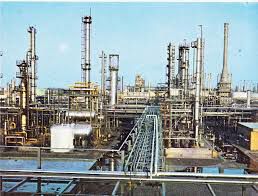1954: THE BRITISH CONSERVATIVE GOVERNMENT AND THE ENDING OF THE NATIONALISATION OF THE ANGLO-IRANIAN OIL COMPANY’S CRISIS.

The Handling of the Crisis
Worried about the spread of the Soviet influence in the area, or a Communist coup in Iran, the United States pressed British to make concessions to settle the oil dispute with Iran. ‘The most desirable solution would be for AIOC and the Government of Iran to negotiate a settlement between themselves,’ was the American view.¹ In reply the British Government emphasised that concessions would encourage seizure of Western investment elsewhere in the world. The replacement of Truman, in January 1953, by ‘the new administration led by Eisenhower and Dulles proved more amenable to British arguments,²in the Iranian crisis. On 20th June 1953, President Eisenhower formally took Britain’s side by writing to the Iranian Prime Minister, Dr. Musaddiq. In his letter, President Eisenhower informed Musaddiq of the United States’ refusal to give aid to Iran or buy Iranian oil. This action was taken after the proposal put forward to the Iranian Government by the American Government on 20th February 1953, as was discussed in the last chapter, was rejected by the Iranian Prime Minister. By now the United States’s Stated Department openly acknowledged its frustration with Musaddiq.
In an attempt to weaken Dr. Musaddiq’s position, by creating a general economic recession in Iran, the Anglo-Iranian Oil Company, due to its enormous influence throughout the world, as will be shown, had already brought about an embargo on Iranian oil, as well as withdrawing qualified technicians from Iran.
Virtually no exports of oil from Iran became possible. Former foreign buyers of Iranian oil on 13th June 1951 were informed that they might continue for one month to buy such quantities of oil as they required on signature of the National Iranian Oil Company’s receipt. Then onwards they would be allocated quotas in proportion to the amounts taken by them during the period between January 1948 and 30th March 1951, and to pay for them at the current international price.
In view of the political predicament, in spite of the fact that the notification was posted overseas as well as in Iran, there was little response. Two ships gave the necessary receipts, but most were under the Anglo-Iranian Oil Company and refused. However, a number of offers came from private companies in India and the United States. As well as offering large discounts, the Iranian Government was also ready to give the buyers:
guarantees against any failure to maintain supplies at the contracted figure, including compensation for the dispatch of tankers that had to return empty and losses incurred through consequent failure of the purchasing company to fulfil its contracts with its customers.³
The British Embassy was also informed on 12th December 1951 by Dr. Musaddiq, the Iranian Prime Minister, that if by 22nd December 1951 no offers came from former purchasers of Iranian oil, the Iranian Government would feel free to sell to any customer offering to buy oil. On 22nd December 1951, the Anglo-Iranian Oil Company published a notice in the world press,
that no oil company of repute or any tanker or any brokers of standing will countenance any direct or indirect participation in the unlawful actions of the Iranian Government.4
- Department of State: Papers Relating to the Foreign Relations of the United States, (Washington DC Annual), 1952-54, Vol. IX, p. 762, the Near and Middle East, Agreed Minutes of the Fourth Session of the United States-French talks on Middle East oil, Secret, December 21st 1953.
- A.P. DOBSON, The Politics of the Anglo-America Economic Special Relationship 1940-1987, (Brighton: Wheatsheaf Books, 1988), p. 143.
- L.P. ELWELL-SUTTON, Persian Oil: A Study in Power Politics, (London: Lawrence and Wishart Ltd., 1955), p. 295
- Ibid.



